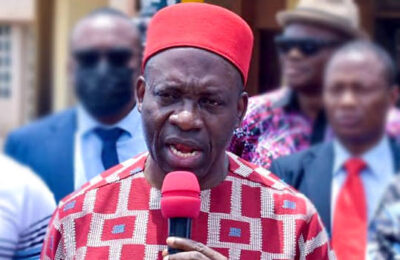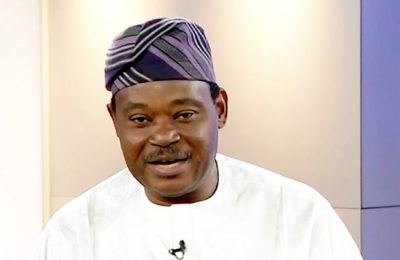Decisions are the platform on which we stand to leapfrog into the future or to slide into the dustbin of history. Our decisions reveal our personality, our fears, hopes, values, aspirations and our perspective of the time and space in which we live and function. Leaders need tact in making vital decisions with a greater level of certainty. If you hesitate to take a decision when you should be prompt, you are seen to be indecisive and perhaps tardy. On the other hand, if you rush into a decision without proper consideration for all possible consequences on people and the system, you will be regarded as harsh and perhaps irrational. Sometimes, the leader really finds himself between the devil and the deep blue sea!
There is an interesting scenario in the Bible. It is found in 2Kings 7. The city of Samaria was besieged by an enemy army. This resulted in a protracted famine that put a serious strain on the city’s resources by blocking the supply stream and challenging the king’s leadership capacity. In the ensuing struggle to survive, people resorted to cannibalism and other sorts of schemes to stay alive. In his frustration, the king threatened the prophet Elisha who in turn gave a prophecy of a 24-hour miracle of abundance. In the meantime, there were four lepers who were sitting at the gates of the city. Because by the culture, they were outcasts, it was unthinkable that anyone would spare them any food to eat in the famished city. Yet they knew that they had to stay alive. In their own words, if they stayed where they were or went into the city, death was guaranteed. Only one option was left. Go into the enemy camp and take the 50-50 chance of being spared and fed or killed. They chose to take the option that offered the chances!
Psychologists teach us that our personality style or temperament will ultimately affect the quality and promptness of our decisions. Someone with a choleric temperament would likely take decisions as soon as they are convinced that that is the way to go, no matter whose ox is gored. The sanguine would not want to step on toes, thus wanting to take only decisions that make everyone happy. Even if those decisions bring only short-term benefits, his high-octave positivity and optimism make him believe that things would be fine ultimately. The phlegmatic person is not hasty about decisions because he loves to think things through. He takes time to process his thoughts and once he takes a decision, he hardly goes back on it. For the melancholic, his decisions are likely to be steeped in emotions and may lack significant objectivity.

No matter your personality however, you will take decisions. As indicated earlier, every moment of our lives revolves around the decisions, little or significant, that we take daily. While the seemingly innocuous decisions may range from when to wake up, what to eat to what to wear, more significant decisions could be economic, political, professional or family-related. As we take the decisions, we also sign up for the consequences. This is why we cannot take some decisions lightly or without proper consideration for all factors and possible options because a decision is usually the preference for or choice of one of many options available to us. What this simply indicates is that ample information enhances decision-making.
As we saw in the series on “Sailing The Storm”, uncertainty is a reality that leaders are often confronted with. Uncertainty usually presents as threats or opportunities. Life and the corporate operating environment are constantly in a flux. Flexibility, adaptability and teachability are the key qualities that help a leader to effectively navigate uncertainty. Every season or situation of uncertainty confronts the leader with a certain risk profile. The risk profile is usually situation-specific. This means that as the situation changes, so does the risk profile. One of the major mistakes that leaders make is the tendency to force a decision prematurely because they want to escape uncertainty. What those who do that fail to realise is that a wrong decision can actually trigger the uncertainty that they are trying to escape! When faced with uncertainty, the leader’s perspective will determine whether he sees or treats it as a threat to his cherished status quo or as an opportunity to rethink, re-strategise, and reinvent his systems and processes to embrace the potentials that the uncertainty presents for growth. Consequently, the first thing to do is to gain perspective. This is enhanced by appropriate framings of the scenario by asking the right questions. The real question should not be about what to do but about how much time the leader or his organisation has before the risk profile changes. Forcing a premature decision does not in any way change the uncertainty.
For his decisions to be effective in periods of uncertainty, the leader must humble himself and know that he does not have all the answers. To this end, he has to learn to get as much information as possible. The more information he can harvest, the clearer the picture of possibilities of navigating the maze of uncertainty. Humility makes it possible for the leader to brainstorm with and harvest ideas from other people about the situation by talking less and listening more. He should not shy away from holding brainstorming and ideation sessions that throw possibilities, no matter how ridiculous they seem, on the table. As ideas fly around the room, some of them may end up crystallising into the silver bullet required for effective decision-making and for dealing with the challenges ahead. Asking the right questions will always expand the frontiers of possibilities. Strategies are a set of decisions that help to confront the challenges of growth. They must therefore not be based on kneejerk, impulsive nuances or fanciful thinking on the part of a leader. Questions are thinking tools that help the leader in strategy formulation. The more questions are asked around any issue, the more possibilities are thrown up around it. If you want to resolve a knotty issue, double the question to statement ratio.

What happens if the decisions taken turn out to be bad? My answer to that is that you would not know if it would be good if you never took it. Being paralysed by the fear of failure is actually the twin of the fear of success! Inertia is the result. And that is far more dangerous than making a move that goes awry. In the words of an old friend, faith is a risk, and it is risky not to take risks. Failure only alerts you to the limitations of your current strategy. It is an event, not the goal. With humility, the leader admits his mistakes and shows that, like every other man, he too is vulnerable. When you pull back in taking some necessary decisions, just make sure you don’t stay back. Use the force of restraint to weigh all the options to gather information, harvest and harness the information, then use it to make decisions, not for the sake of popularity or pressure but for expediency.

Remember, the sky is not your limit, God is!
READ ALSO FROM NIGERIAN TRIBUNE








